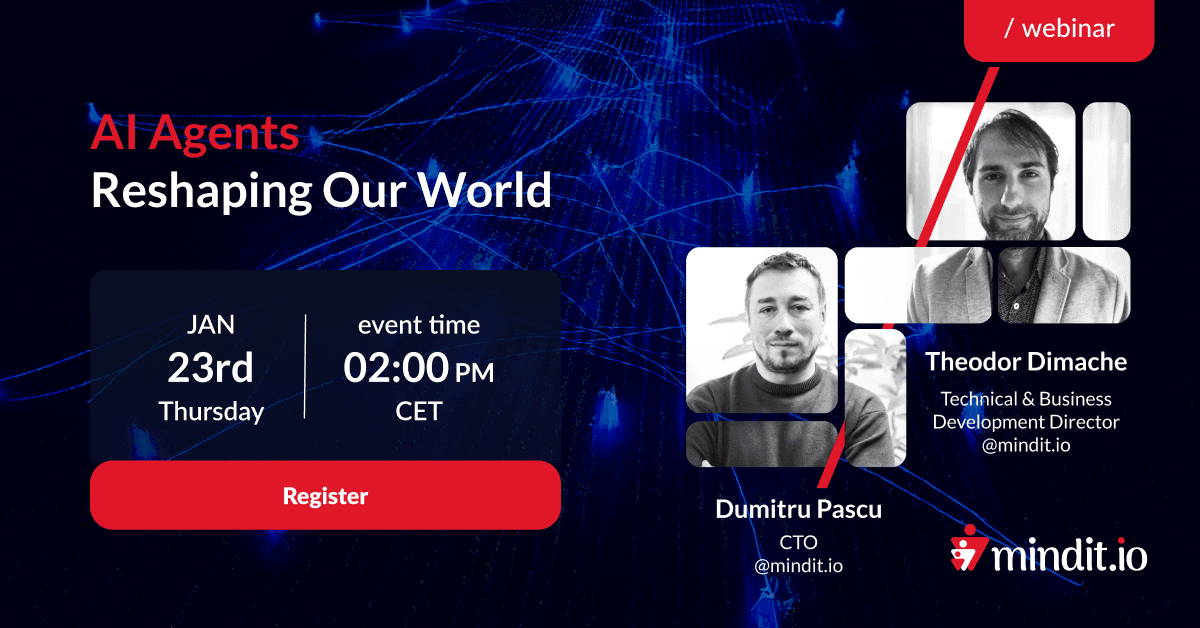AI agents are software programs that can perceive their environment, process data, make decisions, and take actions to achieve specific goals. Unlike traditional software that follows pre-defined rules and logic, AI agents use machine learning algorithms to learn from data, recognize patterns, and adapt their behavior accordingly.
At their core, AI agents possess several key capabilities:
1. Perception: AI agents can observe and collect data from their environment, such as sensor data, user inputs, or information from databases.
2. Learning: Through machine learning techniques like deep learning, reinforcement learning, or natural language processing, AI agents can learn from the data they perceive and improve their decision-making over time.
3. Reasoning: AI agents can process and analyze the data they receive, drawing insights and conclusions based on their learned knowledge and programmed rules.
4. Decision-making: Based on their reasoning, AI agents can make decisions and determine the best course of action to achieve their goals.
5. Action: AI agents can execute actions in their environment, such as controlling systems, providing recommendations, or generating outputs like text, images, or speech.
What sets AI agents apart from traditional software is their ability to learn and adapt autonomously. Traditional software follows a predefined set of rules and logic, while AI agents can continuously improve their performance and decision-making capabilities based on the data they encounter, without the need for explicit reprogramming.
Don’t miss our next webinar “AI Agents Reshaping Our World”!
Learn how AI agents are transforming industries with insights on:
Latest industry applications
Tech challenge solutions
Human-AI collaboration
Implementation strategies
Register here
How AI Agents Work
AI agents are computer programs that can perceive their environment, process information, make decisions, and take actions to achieve specific goals. They are powered by artificial intelligence technologies, including machine learning, natural language processing, computer vision, and reasoning algorithms.
At the core of an AI agent is its architecture, which defines how it processes information and makes decisions. One common architecture is the sense-think-act cycle:
1. Sense: The agent perceives its environment through sensors or data inputs, such as customer interactions, inventory levels, or sales data.
2. Think: The agent processes the sensory data using machine learning models, knowledge bases, and decision-making algorithms to analyze the situation and determine the best course of action.
3. Act: Based on the analysis, the agent takes an action, such as responding to a customer query, adjusting inventory levels, or optimizing pricing.
The “think” phase is where the AI agent’s intelligence resides. It typically involves various machine learning models and algorithms:
– Natural Language Processing (NLP): NLP models are used to understand and generate human-readable text, enabling the agent to communicate with customers and interpret data.
– Computer Vision: Computer vision algorithms allow the agent to process and understand visual data, such as product images or surveillance footage.
– Predictive Analytics: Machine learning models are trained on historical data to predict future trends, customer behavior, or demand patterns.
– Optimization Algorithms: These algorithms help the agent find the best solution or decision among multiple options, considering various constraints and objectives.
– Reinforcement Learning: In this approach, the agent learns through trial-and-error interactions with its environment, adjusting its behavior to maximize a reward signal.
AI agents can be rule-based, using predefined logic and knowledge bases, or they can be trained on data using machine learning techniques. Many modern AI agents combine both approaches, leveraging the flexibility of machine learning and the interpretability of rule-based systems.
Benefits of AI Agents
AI agents offer several significant advantages to businesses, particularly in the retail sector:
Automation: AI agents can automate repetitive and time-consuming tasks, freeing up human employees to focus on more complex and strategic activities. This automation leads to increased efficiency, reduced costs, and improved productivity.
Scalability: Unlike human employees, AI agents can easily scale up or down to meet fluctuating demand. During peak periods, AI agents can handle increased workloads without compromising performance or customer experience.
Adaptability: AI agents can adapt to changing circumstances and learn from new data inputs. As customer preferences and market trends evolve, AI agents can adjust their behavior and decision-making accordingly, ensuring that businesses remain agile and responsive.
Continuous Learning: One of the key strengths of AI agents is their ability to continuously learn and improve over time. As they process more data and interactions, AI agents can refine their algorithms and decision-making capabilities, becoming more accurate and effective.
Consistency: AI agents operate based on predetermined rules and algorithms, ensuring consistent decision-making and service delivery. This consistency can help businesses maintain high standards and provide a reliable experience for customers.
24/7 Availability: AI agents can operate around the clock, providing uninterrupted service and support to customers regardless of time zones or business hours. This constant availability can improve customer satisfaction and enhance the overall customer experience.
Insights: AI agents can analyze vast amounts of data, identifying patterns and insights that would be difficult or impossible for humans to detect. These insights can inform business decisions, optimize operations, and drive innovation.
By leveraging the benefits of AI agents, retail businesses can gain a competitive edge, enhance operational efficiency, and deliver superior customer experiences.
AI Agents in Retail – Overview
The retail industry has been at the forefront of adopting AI agents, recognizing their immense potential to streamline operations, enhance customer experiences, and drive business growth. The prevalence of AI agents in retail is rapidly increasing, with major retailers investing heavily in developing and deploying these intelligent systems.
AI agents are playing a strategic role in transforming the retail landscape, enabling retailers to gain a competitive edge by leveraging data-driven insights, automating processes, and delivering personalized experiences to customers. From virtual assistants to inventory optimization algorithms, AI agents are revolutionizing every aspect of the retail value chain.
The integration of AI agents in retail has become a necessity rather than a luxury, as businesses strive to meet the ever-evolving demands of tech-savvy consumers and stay ahead of the competition. By harnessing the power of AI, retailers can make data-driven decisions, streamline operations, and provide seamless, personalized shopping experiences that delight customers and foster brand loyalty.
As the retail industry continues to embrace digital transformation, the strategic importance of AI agents will only continue to grow, positioning them as a critical component for success in the ever-changing retail landscape.
Customer Service AI Agents
Chatbots and virtual assistants are among the most prominent use cases of AI agents in the retail industry. These AI-powered customer service tools can handle a wide range of customer queries and interactions, providing round-the-clock support and enhancing the overall customer experience.
Chatbots are designed to simulate human-like conversations, allowing customers to ask questions, seek product information, track orders, and even complete transactions using natural language. They leverage natural language processing (NLP) and machine learning algorithms to understand customer queries and provide relevant responses. Chatbots can be integrated into various channels, such as websites, mobile apps, and messaging platforms, ensuring a seamless and consistent customer experience across multiple touchpoints.
Virtual assistants take customer service a step further by incorporating advanced technologies like speech recognition and text-to-speech capabilities. These AI agents can engage in more natural and conversational interactions, allowing customers to use voice commands to perform tasks or get information. Virtual assistants can also leverage contextual data, such as customer history and preferences, to provide personalized recommendations and tailored assistance.
AI-powered customer service agents offer several benefits to retailers:
1. 24/7 Availability: Unlike human agents, AI agents can operate around the clock, ensuring customers receive prompt assistance whenever they need it.
2. Cost Efficiency: Implementing AI agents can significantly reduce operational costs associated with traditional customer service channels, such as call centers and physical storefronts.
3. Scalability: AI agents can handle a large volume of customer interactions simultaneously, making them highly scalable and capable of accommodating fluctuations in demand.
4. Consistency: AI agents follow predefined rules and algorithms, ensuring consistent and standardized responses, reducing the risk of human error or inconsistencies.
5. Multilingual Support: AI agents can be trained to understand and communicate in multiple languages, enabling retailers to provide seamless customer support to a global customer base.
6. Personalization: By leveraging customer data and machine learning, AI agents can offer personalized recommendations, tailored promotions, and customized experiences, enhancing customer satisfaction and loyalty.
Automated customer support through AI agents is transforming the retail industry, enabling businesses to provide efficient, cost-effective, and personalized service to their customers. As AI technologies continue to evolve, the capabilities and applications of customer service AI agents are expected to expand, further enhancing the customer experience in the retail sector.
AI Personalization Agents
AI personalization agents are revolutionizing the way retailers interact with customers, offering tailored product recommendations, personalized marketing campaigns, and targeted promotions. By leveraging advanced machine learning algorithms and data analytics, these intelligent systems can analyze customer behavior, preferences, and purchase history to deliver highly personalized experiences.
One of the primary applications of AI personalization agents is product recommendation. These agents can analyze a customer’s browsing patterns, past purchases, and even social media activity to suggest products that align with their interests and preferences. This not only enhances the shopping experience but also increases the likelihood of sales and customer satisfaction.
Personalized marketing is another powerful application of AI agents in retail. By understanding individual customer preferences and behaviors, these agents can create highly targeted marketing campaigns, tailoring messaging, offers, and promotions to specific customer segments. This level of personalization increases the relevance and effectiveness of marketing efforts, leading to higher engagement and conversion rates.
Targeted promotions are also facilitated by AI personalization agents. By analyzing customer data, purchase patterns, and market trends, these agents can identify the most appropriate promotions and discounts for each customer. This targeted approach not only drives sales but also fosters customer loyalty by providing a personalized and valuable experience.
Moreover, AI personalization agents can continuously learn and adapt to changing customer preferences and market dynamics, ensuring that the personalized experiences remain relevant and effective over time. This adaptive capability sets AI agents apart from traditional personalization methods, providing a competitive edge for retailers in an ever-evolving market.
Inventory Management AI Agents
AI agents are revolutionizing inventory management in the retail sector by providing advanced demand forecasting, supply optimization, and replenishment automation capabilities. These intelligent systems analyze vast amounts of data, including historical sales patterns, market trends, consumer behavior, and external factors like weather and economic conditions, to accurately predict future demand for products.
With demand forecasting, AI agents help retailers anticipate customer needs and preferences, enabling them to stock the right products in the right quantities at the right time. This proactive approach minimizes stockouts and overstocking, reducing waste and increasing customer satisfaction.
Supply optimization is another critical function of AI agents in inventory management. These agents optimize the supply chain by identifying the most efficient and cost-effective sourcing options, negotiating with suppliers, and managing logistics. They can dynamically adjust orders based on real-time demand fluctuations, ensuring a seamless flow of products from suppliers to warehouses and stores.
Replenishment automation is a game-changer in inventory management. AI agents continuously monitor stock levels across multiple locations and automatically place replenishment orders when inventory falls below predetermined thresholds. This automated process eliminates the need for manual intervention, reduces human errors, and ensures timely restocking, preventing potential stockouts and lost sales.
Moreover, AI agents can identify patterns and anomalies in inventory data, enabling proactive measures to address potential issues before they escalate. For instance, they can detect slow-moving products, suggest markdowns or promotions, and recommend product assortment adjustments based on customer preferences and market trends.
Pricing and Promotion AI Agents
Dynamic Pricing
AI agents can analyze vast amounts of data, including competitor prices, customer demand patterns, inventory levels, and market trends, to dynamically adjust prices in real-time. This enables retailers to stay competitive, maximize revenue, and respond quickly to market changes. AI algorithms can identify the optimal price points for different products, locations, and customer segments, ensuring that prices are always aligned with market conditions and customer willingness to pay.
Markdown Optimization
Markdowns are a crucial aspect of retail, helping to clear out excess inventory and make room for new products. However, determining the right markdown strategy can be challenging, as retailers must balance the need to move inventory with the desire to maintain profit margins. AI agents can analyze historical sales data, inventory levels, and customer behavior to recommend optimal markdown schedules and percentages. This data-driven approach ensures that markdowns are applied strategically, maximizing revenue while minimizing the risk of overstocking or understocking.
Promotion Scheduling
Promotions are a powerful tool for driving sales and customer engagement, but timing and targeting are critical to their success. AI agents can analyze customer data, purchase patterns, and market trends to identify the best times and channels for launching promotions. They can also personalize promotions for different customer segments, increasing the likelihood of conversion and customer satisfaction. By automating and optimizing promotion scheduling, AI agents can help retailers maximize the impact of their marketing efforts while minimizing waste and inefficiencies.
AI Agents for Operations
AI agents can revolutionize retail operations by automating routine tasks, optimizing processes, and enhancing workforce management. These intelligent systems can streamline operations, reduce costs, and improve efficiency across various areas.
Task Automation: AI agents can automate repetitive and time-consuming tasks, freeing up human employees to focus on more complex and value-adding activities. For example, AI agents can handle tasks such as inventory tracking, order processing, and data entry, reducing the risk of human error and increasing speed and accuracy.
Process Optimization: By analyzing vast amounts of data and identifying patterns, AI agents can optimize retail processes, such as supply chain management, inventory management, and logistics. They can predict demand, identify bottlenecks, and suggest improvements to streamline operations, leading to cost savings and increased efficiency.
Workforce Management: AI agents can assist in workforce management by analyzing employee performance, scheduling shifts, and providing personalized training recommendations. They can identify skill gaps, recommend training programs, and even conduct virtual training sessions, ensuring that employees are equipped with the necessary knowledge and skills to perform their roles effectively.
Furthermore, AI agents can monitor operations in real-time, detect anomalies or deviations from expected patterns, and alert human supervisors, enabling proactive problem-solving and minimizing disruptions. With their ability to continuously learn and adapt, AI agents can evolve alongside the ever-changing retail landscape, providing a competitive edge to businesses that embrace this technology.
Challenges and Limitations
Despite the numerous benefits and potential applications of AI agents in the retail industry, there are several challenges and limitations that need to be addressed:
Data Issues: The effectiveness of AI agents heavily relies on the quality and quantity of data available for training. Incomplete, biased, or inaccurate data can lead to flawed decision-making and undesirable outcomes. Ensuring data privacy and security is also a critical concern, especially when dealing with customer information.
Ethical Considerations: The use of AI agents raises ethical questions regarding transparency, accountability, and potential biases. There is a risk of perpetuating societal biases or making decisions that discriminate against certain groups if the AI systems are not designed and implemented responsibly.
Trust and Acceptance: Building trust and gaining acceptance from customers and employees is crucial for the successful adoption of AI agents. Concerns about privacy, job displacement, and the perceived lack of human control can hinder the adoption of these technologies.
Scalability Hurdles: Deploying AI agents at scale across multiple retail locations, integrating with existing systems, and ensuring seamless operation can be challenging. Scalability issues may arise due to infrastructure limitations, compatibility problems, or the complexity of managing and maintaining a large-scale AI deployment.
Change Management: Introducing AI agents into retail operations often requires significant organizational and cultural changes. Effective change management strategies are necessary to ensure smooth transition, employee buy-in, and proper training to leverage the full potential of these technologies.
Regulatory Compliance: As AI technologies continue to evolve, regulatory frameworks and guidelines may need to be established to ensure ethical and responsible use of AI agents in the retail sector. Compliance with data protection laws, consumer privacy regulations, and industry-specific guidelines is crucial.
It is important to address these challenges proactively through robust data governance practices, ethical AI development frameworks, transparency measures, and comprehensive change management strategies. Collaboration between technology providers, retailers, policymakers, and stakeholders is essential to overcome these limitations and unlock the full potential of AI agents in the retail industry.
Future of AI Agents in Retail
The future of AI agents in retail is poised for significant growth and innovation. As emerging technologies such as advanced machine learning, natural language processing, and computer vision continue to evolve, AI agents will become increasingly sophisticated and capable of handling more complex tasks.
One emerging trend is the integration of AI agents with Internet of Things (IoT) devices and sensors. This will enable AI agents to gather real-time data from various sources, such as inventory levels, foot traffic patterns, and customer behavior, allowing for more accurate and personalized recommendations and decisions.
Another trend is the development of multi-modal AI agents that can understand and respond to multiple modes of communication, including voice, text, and visual inputs. This will enhance the customer experience by providing a more natural and intuitive interaction with AI agents.
Additionally, the adoption of edge computing and 5G networks will enable AI agents to process data and make decisions closer to the source, reducing latency and improving responsiveness. This will be particularly beneficial for time-sensitive applications, such as real-time inventory management and dynamic pricing.
In the future, AI agents may also become more autonomous and capable of self-learning and adaptation. They could continuously improve their performance by analyzing data and adjusting their algorithms, enabling them to provide more accurate and relevant recommendations and decisions over time.
Furthermore, advancements in explainable AI (XAI) will make AI agents more transparent and trustworthy. XAI techniques will allow AI agents to explain their decision-making processes, providing retailers with valuable insights and enabling them to make informed decisions based on the AI agent’s recommendations.
Overall, the future of AI agents in retail promises to be exciting and transformative, with the potential to revolutionize various aspects of the retail industry, from customer experience to supply chain management and beyond.
Getting Started with AI Agents
Implementing AI agents in retail can be a complex process, but with proper planning and execution, it can yield significant benefits. Here are some tips for getting started:
Evaluation and Planning:
1. Identify the key areas where AI agents can provide value, such as customer service, personalization, inventory management, or operations.
2. Assess your current data infrastructure and ensure you have access to high-quality, relevant data to train and deploy AI models effectively.
3. Conduct a cost-benefit analysis to understand the potential return on investment (ROI) and determine the appropriate budget for AI agent implementation.
Implementation Approach:
1. Start with a pilot project in a specific area to test the waters and gather learnings before scaling up.
2. Collaborate with AI experts, data scientists, and domain experts to develop tailored AI solutions for your retail business.
3. Establish clear metrics and Key Performance Indicators (KPIs) to measure the success of your AI agents and make data-driven decisions.
Building AI Capabilities:
1. Invest in upskilling your workforce with AI and data literacy to foster a culture of innovation and enable effective collaboration with AI systems.
2. Develop a robust data governance framework to ensure data quality, privacy, and security.
3. Continuously monitor and fine-tune your AI agents based on performance metrics and customer feedback to ensure they remain effective and relevant.
4. Stay updated with the latest advancements in AI technology and explore opportunities to integrate new capabilities into your AI agents.
Remember, successful AI agent implementation requires a strategic approach, cross-functional collaboration, and a commitment to continuous improvement. By following these tips, you can lay a solid foundation for leveraging the power of AI in your retail operations.









































